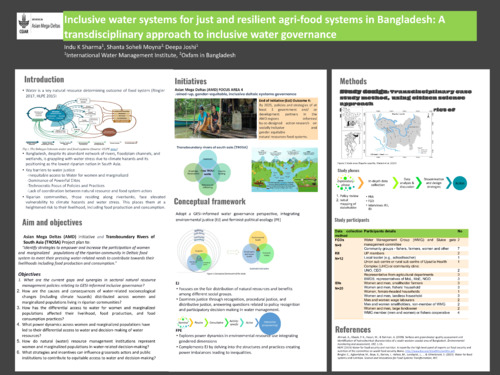Inclusive water systems for just and resilient agri-food systems in Bangladesh: A transdisciplinary approach to inclusive water governance
Abstract
A lack of equitable access to water among marginalized populations is a key constraint to the transformative agri-food system in Bangladesh. A centralized approach to managing water, persistent contextual socioecological barriers and the dominance of the powerful elite at multiple levels in the water governance systems have led to the exclusion of women, the poor, fishers and the landless from equitably accessing water resources. These challenges contradict national policy guidelines on participatory water management. The Asia Mega-Deltas initiative, in partnership with the Oxfam-led Transboundary Rivers of South Asia (TROSA)—Rivers, Rights and Resilience Project, plans to implement participatory research using a transdisciplinary approach that involves multiple sectors and stakeholders in water management to identify actionable pathways to addressing complex water issues. The TROSA second phase (2023–2026) will continue to work with evidence-based advocacy on inclusive water resources governance while addressing impacts of climate change on riparian communities through incorporating a citizen science approach for river health, supporting youth initiatives in the water sector, facilitating bilateral dialogues, strengthening resilience of livelihoods and ensuring people’s rights over river with special focus on women and Indigenous communities.

